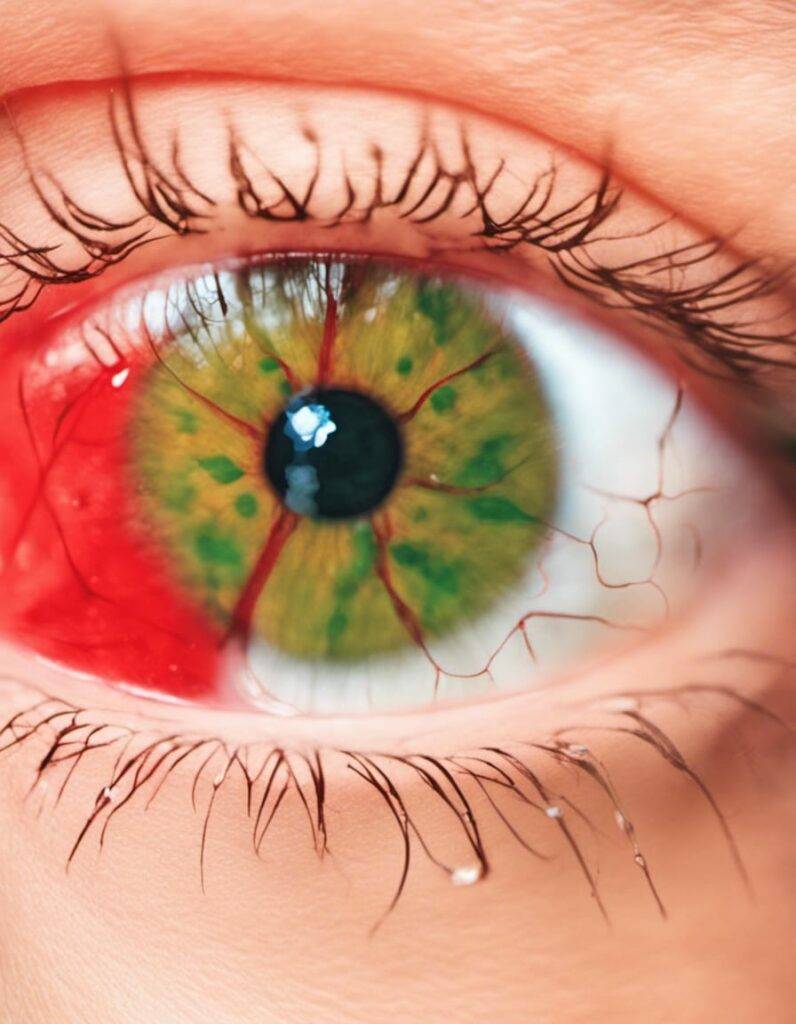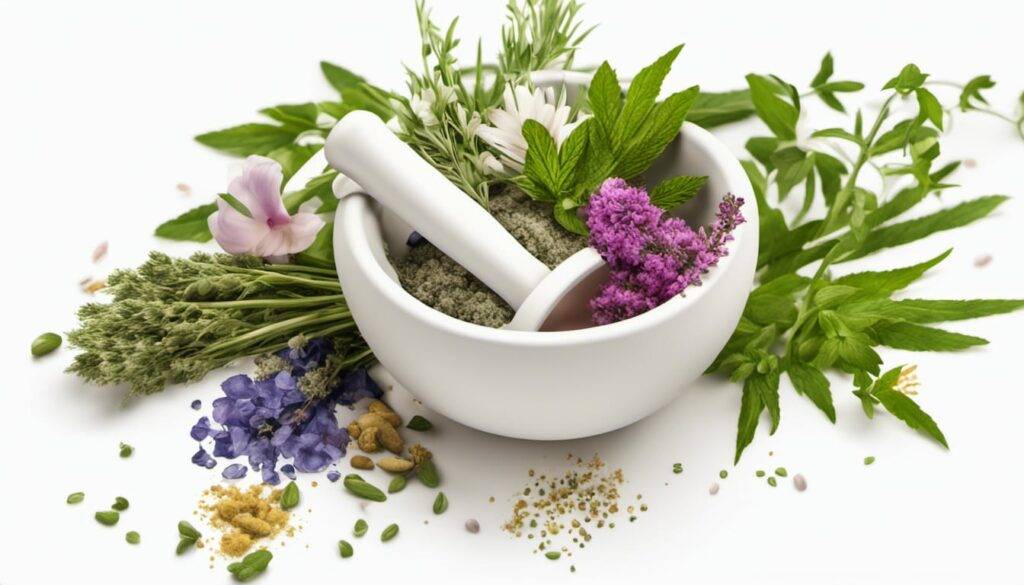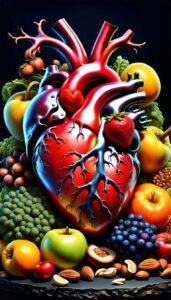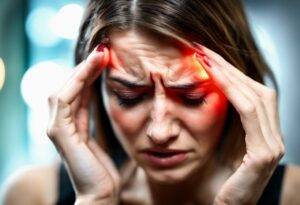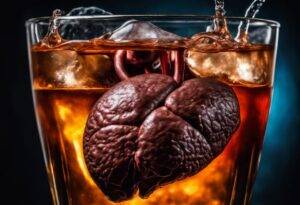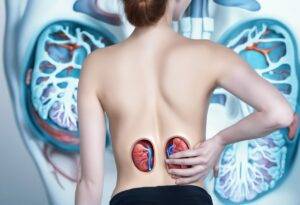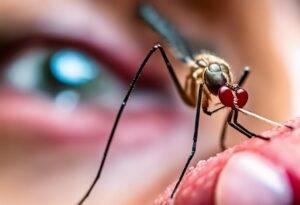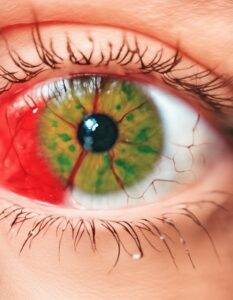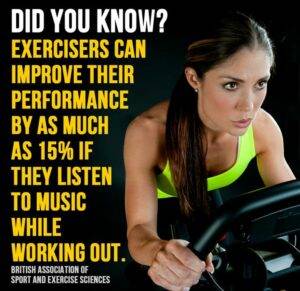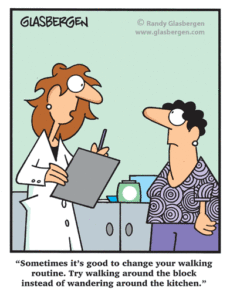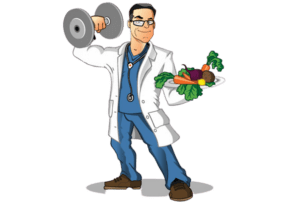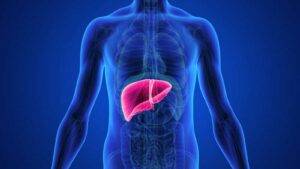High blood pressure, commonly known as hypertension, is a widespread medical condition affecting millions of people worldwide. Its silent nature often leads to undetected cases, putting individuals at risk of severe health consequences. In this comprehensive paper, we explore the causes, symptoms, diagnosis, treatment options, and long-term effects of hypertension. By shedding light on this prevalent condition, we aim to raise awareness and provide valuable insights for individuals seeking to understand and manage their blood pressure effectively.
From Silent Threat to Looming Complications: The Untreated Consequences of Hypertension
Just a little heads up: some of the links on this site may be affiliate links, which means if you make a purchase through them, we might get a little kickback. But don’t worry, it won’t cost you a cent extra! Think of it as the universe secretly thanking us for helping you find a great deal. Your support keeps the good vibes flowing.
1. What is hypertension, and what are the common symptoms and signs of high blood pressure?
Hypertension, also known as high blood pressure, is a medical condition characterized by elevated blood pressure levels consistently above the normal range. Common symptoms and signs of high blood pressure may include headaches, dizziness, blurred vision, fatigue, chest pain, and difficulty breathing.
2. What causes hypertension? Are there any specific risk factors or underlying conditions that contribute to its development?
The exact cause of hypertension is often unknown, but there are several risk factors and underlying conditions that contribute to its development. These include obesity, physical inactivity, smoking, excessive alcohol consumption, stress, family history of hypertension, age, race, certain chronic conditions (such as diabetes, kidney disease, and sleep apnea), and certain medications or substances (such as oral contraceptives and nonsteroidal anti-inflammatory drugs).
3. How is high blood pressure diagnosed? What tests or measurements are involved in determining someone’s blood pressure levels?
High blood pressure is diagnosed through blood pressure measurements. The most common method involves using a sphygmomanometer, which measures both systolic (the pressure when the heart contracts) and diastolic (the pressure when the heart relaxes) blood pressure. Blood pressure measurements are recorded in millimeters of mercury (mmHg), and a diagnosis of hypertension is made when blood pressure consistently reads130/80 mmHg or higher.
4. What are the potential complications and long-term effects of untreated or poorly managed hypertension?
Untreated or poorly managed hypertension can lead to various potential complications and long-term effects. These may include an increased risk of heart disease, heart attack, stroke, kidney disease, vision loss, peripheral arterial disease, sexual dysfunction, and cognitive decline.
5. How can lifestyle modifications such as diet, exercise, and stress reduction help in controlling high blood pressure?
Lifestyle modifications play a crucial role in controlling high blood pressure. A healthy diet, such as the Dietary Approaches to Stop Hypertension (DASH) diet, rich in fruits, vegetables, whole grains, lean proteins, and low-fat dairy products, can help lower blood pressure. Regular exercise, such as brisk walking or swimming, and stress reduction techniques like meditation, deep breathing exercises, and yoga can also be effective in managing hypertension.
6. What are the different stages and classifications of hypertension? How do these classifications affect the treatment approach?
Hypertension is classified into different stages based on blood pressure readings. The stages include: normal blood pressure (less than120/80 mmHg), elevated blood pressure (120-129/less than80 mmHg), stage1 hypertension (130-139/80-89 mmHg), and stage2 hypertension (140/90 mmHg or higher). The classification helps determine the appropriate treatment approach, with lifestyle modifications and/or medication.
7. Are there any recommended dietary restrictions or specific foods that can help lower blood pressure?
There are recommended dietary restrictions and specific foods that can help lower blood pressure. These include reducing sodium (salt) intake, limiting processed foods, and increasing potassium-rich foods like bananas, oranges, avocados, and leafy greens. Other beneficial foods for blood pressure control include whole grains, lean proteins, unsaturated fats (found in olive oil and nuts), and low-fat dairy products.
8. How does stress impact blood pressure levels, and what are some effective stress management techniques for individuals with hypertension?
Stress can significantly impact blood pressure levels. When experiencing stress, the body releases stress hormones that temporarily increase blood pressure. Over time, chronic stress can contribute to the development and exacerbation of hypertension. Effective stress management techniques for individuals with hypertension include regular exercise, deep breathing exercises, mindfulness meditation, yoga, maintaining a healthy work-life balance, and seeking support from loved ones or professional counselors.
9. Can hypertension be managed solely through non-pharmacological interventions, or is medication generally necessary?
Hypertension management typically requires a combination of non-pharmacological interventions and medication. Non-pharmacological interventions include lifestyle modifications like adopting a healthy diet, regular physical activity, stress reduction techniques, and weight management. While these interventions can be effective, medication is often necessary to achieve optimal blood pressure control, especially in cases of moderate to severe hypertension or when lifestyle modifications alone are insufficient.
10. What are the common types of medication prescribed for hypertension management, and what are their potential side effects?
Common types of medication prescribed for hypertension management include diuretics, ACE inhibitors, angiotensin II receptor blockers (ARBs), beta-blockers, calcium channel blockers, and renin inhibitors. Each medication works in a different way to lower blood pressure. Potential side effects vary based on the medication but can include dizziness, fatigue, headache, cough, gastrointestinal issues, and sexual dysfunction. It is important to work closely with a healthcare professional or doctor to find the most effective medication with the fewest side effects for each individual case.
11. How frequently should blood pressure be monitored and what are the target blood pressure ranges for different age groups?
Blood pressure should be monitored regularly, especially for individuals with hypertension. For most people, it is recommended to have blood pressure checked at least once every one to two years if their readings are consistently normal (less than 120/80 mmHg). However, for those with high blood pressure or other risk factors, more frequent monitoring may be necessary.
The target blood pressure ranges can vary based on age and overall health. Here are the general target ranges for different age groups:
– Adults under60: Less than140/90 mmHg
– Adults over60: Less than150/90 mmHg
– Individuals with diabetes or kidney disease: Less than130/80 mmHg
Please note that these target ranges may vary depending on individual circumstances, so it’s important to consult with a healthcare professional for personalized recommendations.
12. Can hypertension be cured, or is it a chronic condition that requires lifelong management?
Hypertension, also known as high blood pressure, is typically a chronic condition that requires lifelong management. While it can often be controlled through lifestyle modifications and medication, there is currently no known cure for hypertension. However, with proper management and adherence to treatment plans, individuals with hypertension can lead a healthy and fulfilling life.
13. How does hypertension impact pregnancy? What precautions should pregnant women with high blood pressure take?
Hypertension can significantly impact pregnancy and pose risks for both the mother and the baby. Pregnant women with high blood pressure should take certain precautions to ensure a healthy pregnancy, such as:
– Regular prenatal care: Regular check-ups with healthcare providers to monitor blood pressure and overall health.
– Medication management: Discuss with a healthcare provider about safe medications to manage blood pressure during pregnancy.
– Healthy lifestyle practices: Maintain a balanced diet, exercise regularly (as advised by healthcare provider), get enough rest, and manage stress.
– Additional monitoring: More frequent monitoring of blood pressure and other potential complications throughout the pregnancy.
– Timely delivery: In some cases, inducing labor earlier than the due date may be necessary to prevent further complications.
It is crucial for pregnant women with high blood pressure to work closely with their healthcare provider to ensure proper management and minimize risks.
14. Are there any alternative or complementary therapies that can help in managing hypertension?
While lifestyle modifications and medication are the primary approaches for managing hypertension, certain alternative or complementary therapies may have some additional benefits. These therapies should not replace conventional treatment but can be used as adjunctive measures. Some examples include:
– Mind-body techniques: Practices like meditation, deep breathing exercises, and yoga may help reduce stress and improve overall well-being.
– Acupuncture: Some studies suggest that acupuncture may help lower blood pressure, but more research is needed to establish its effectiveness.
– Biofeedback therapy: This technique involves using electronic devices to monitor and provide feedback about certain body functions, helping individuals learn to control them, potentially leading to blood pressure reduction.
It’s important to note that these therapies should be used under the guidance of a qualified healthcare professional and should not be the sole method of managing hypertension.
15. What is the relationship between hypertension and other cardiovascular diseases, such as heart disease and stroke?
Hypertension is a major risk factor for developing various cardiovascular diseases, including heart disease and stroke. Consistently elevated blood pressure puts strain on blood vessels and organs, increasing the risk of damage to the heart, arteries, and other blood vessels.
Over time, high blood pressure can lead to atherosclerosis, a condition where fatty deposits build up in the arteries, narrowing them and making them more prone to blockages. This can eventually result in heart disease, heart attacks, or strokes.
It’s crucial to manage hypertension effectively to reduce the risk of developing these serious cardiovascular conditions. Lifestyle modifications, such as maintaining a healthy diet, regular exercise, not smoking, and managing stress, along with prescribed medications, can help control blood pressure and lower the risk of cardiovascular diseases.
16. Are there any specific exercises or physical activities that are particularly beneficial for individuals with high blood pressure?
Regular physical activity is important for managing hypertension and improving overall cardiovascular health. Generally, engaging in aerobic exercises that elevate the heart rate and improve endurance is beneficial. Examples include brisk walking, jogging, swimming, cycling, or dancing.
Additionally, strength training exercises using resistance bands or weights can help improve muscle strength and support joint health. It is important to consult with a healthcare professional or a certified exercise specialist to design an exercise program tailored to individual needs and abilities.
17. How important is weight management and BMI in controlling hypertension? Are there specific weight loss targets to aim for?
Weight management plays a crucial role in controlling hypertension. Maintaining a healthy body weight, especially within a recommended Body Mass Index (BMI) range, can help lower blood pressure and reduce the risk of cardiovascular diseases.
The specific weight loss target varies depending on individual factors, such as age, overall health, and initial weight. In general, even modest weight loss (e.g., losing5-10% of initial body weight) can lead to significant improvements in blood pressure.
For overweight or obese individuals with hypertension, striving for a BMI within the healthy range (18.5-24.9) is advisable. However, the ultimate goal should be achieving a weight that is sustainable and achievable in the long term.
18. What impact does alcohol consumption have on blood pressure? Are there any safe limits for individuals with hypertension?
Excessive alcohol consumption can contribute to high blood pressure. Regular and excessive alcohol intake can raise blood pressure levels and increase the risk of developing hypertension.
While moderate alcohol intake may have some cardiovascular benefits, it is important to understand the recommended limits. Moderation means up to one drink per day for women and up to two drinks per day for men. However, individuals with hypertension may benefit from further reducing or even avoiding alcohol consumption altogether, as it can interfere with blood pressure management and interact with certain medications.
Ultimately, it is advisable to discuss alcohol consumption with a healthcare professional to determine the most suitable approach based on individual health status and treatment plan.
19. Are there natural supplements or herbal remedies that can help in reducing blood pressure levels?
Certain natural supplements and herbal remedies may have potential benefits in reducing blood pressure levels. However, it is important to note that these should not replace prescribed medications or lifestyle modifications but should be used as adjunctive measures under the guidance of a healthcare professional.
Some natural supplements and herbal remedies that have shown promising effects in lowering blood pressure include:
– Garlic extract
– Omega-3 fatty acids (from fish oil or flaxseed)
– Coenzyme Q10
– Hibiscus tea
– Hawthorn extract
Nevertheless, before using any supplements or herbal remedies, it is crucial to discuss their safety, effectiveness, and proper dosage with a healthcare professional, as they can interact with medications and may not be suitable for everyone.
20. How does smoking affect blood pressure? What are the benefits of quitting smoking for individuals with hypertension?
Smoking has a significant impact on blood pressure and overall cardiovascular health. Nicotine and other toxic chemicals in tobacco smoke can cause blood vessels to narrow, leading to increased blood pressure and reduced blood flow to organs.
The benefits of quitting smoking for individuals with hypertension include:
– Blood pressure reduction: Quitting smoking can lead to a significant drop in blood pressure, reducing the risk of hypertension-related complications.
– Improved cardiovascular health: Quitting smoking lowers the risk of heart disease, stroke, and other cardiovascular conditions associated with hypertension.
– Better response to treatment: Individuals who quit smoking may experience improved medication effectiveness and better responses to other hypertension management strategies.
– General health improvements: Quitting smoking improves overall lung function, reduces the risk of various cancers, and leads to better overall health.
Quitting smoking can be challenging, but support from healthcare professionals, counseling services, medications, and nicotine replacement therapies are available to increase the chances of success.
21. Can certain medications or over-the-counter drugs raise blood pressure levels in individuals with hypertension?
Yes, certain medications and over-the-counter drugs can raise blood pressure levels in individuals with hypertension. Nonsteroidal anti-inflammatory drugs (NSAIDs), such as ibuprofen, can increase blood pressure. Some decongestants, such as pseudoephedrine, can also raise blood pressure. It is important for individuals with hypertension to discuss their medication regimen with their healthcare provider to ensure that their medications do not contribute to elevated blood pressure levels.
22. Can sleep disorders, such as sleep apnea, contribute to the development or worsening of hypertension?
Sleep disorders, particularly sleep apnea, can contribute to the development or worsening of hypertension. Sleep apnea is characterized by pauses in breathing during sleep, leading to oxygen deprivation and increased blood pressure. Repeated episodes of reduced oxygen levels during sleep can lead to sustained high blood pressure. Treating sleep apnea through methods such as continuous positive airway pressure (CPAP) therapy can help control blood pressure in individuals with both conditions.
Just a little heads up: some of the links on this site may be affiliate links, which means if you make a purchase through them, we might get a little kickback. But don’t worry, it won’t cost you a cent extra! Think of it as the universe secretly thanking us for helping you find a great deal. Your support keeps the good vibes flowing.
23. Does hormonal imbalance, such as thyroid disorders, play a role in hypertension? Should individuals with such conditions be more vigilant?
Hormonal imbalances, such as thyroid disorders, can play a role in hypertension. Both hypothyroidism (underactive thyroid) and hyperthyroidism (overactive thyroid) have been linked to high blood pressure. Individuals with such conditions should be more vigilant and work closely with their healthcare provider to manage their blood pressure effectively.
24. How does age affect blood pressure levels? Are older adults more prone to hypertension?
Age can affect blood pressure levels, with older adults being more prone to hypertension. As individuals age, blood vessels tend to become less elastic and stiffer, making it harder for them to expand and contract. This stiffness contributes to an increase in blood pressure. Additionally, the risk of developing other conditions that can raise blood pressure, such as kidney disease or hormonal imbalances, also increases with age.
25. Is there a genetic predisposition to developing high blood pressure? Can hypertension run in families?
There is a genetic predisposition to developing high blood pressure, and hypertension can often run in families. Research suggests that genetic factors account for approximately 30-50 % of the risk of developing hypertension. If an individual has a family history of high blood pressure, they may be more susceptible to developing the condition themselves. However, lifestyle factors such as diet and exercise also play a significant role in the development and management of hypertension.
26. What impact does salt/sodium intake have on blood pressure levels? Are there specific dietary recommendations regarding salt consumption?
Salt/sodium intake can have an impact on blood pressure levels. Consuming too much sodium can cause the body to retain water, increasing the volume of blood and putting extra strain on blood vessels, leading to higher blood pressure. The American Heart Association recommends limiting sodium intake to less than1,500 milligrams per day for individuals with hypertension. It is important to read food labels and be mindful of hidden sources of sodium in processed and packaged foods.
27. Can certain medical conditions, like kidney disease or diabetes, cause or exacerbate hypertension?
Yes, certain medical conditions, such as kidney disease or diabetes, can cause or exacerbate hypertension. Kidney disease can interfere with the body’s ability to regulate fluids and eliminate waste products, leading to increased blood pressure. Diabetes, particularly uncontrolled diabetes, can also contribute to high blood pressure by damaging blood vessels and affecting kidney function. Effective management and treatment of these underlying conditions are essential in controlling blood pressure.
28. Are there any specific relaxation techniques or methods that can help lower blood pressure during stressful situations?
There are specific relaxation techniques and methods that can help lower blood pressure during stressful situations. Deep breathing exercises, progressive muscle relaxation, and meditation have been shown to effectively reduce blood pressure. These techniques aim to activate the body’s relaxation response, leading to a decrease in heart rate and blood pressure. Regular practice of these techniques, along with stress management strategies, can be beneficial for individuals with hypertension.
29. How does caffeine consumption affect blood pressure levels? Should individuals with hypertension limit their caffeine intake?
Caffeine consumption can temporarily raise blood pressure levels. It stimulates the release of adrenaline, which can cause blood vessels to constrict and heart rate to increase. While the effects of caffeine vary among individuals, it is generally recommended for individuals with hypertension to limit their caffeine intake. Moderation is key, and it may be helpful to monitor one’s blood pressure after consuming caffeinated beverages to assess personal sensitivity.
30. Are there any emerging technologies or advancements in hypertension management that individuals should be aware of?
There are several emerging technologies and advancements in hypertension management that individuals should be aware of. These include wearable devices that track blood pressure and heart rate, telemedicine services that allow remote monitoring and consultations with healthcare providers, and mobile applications that provide personalized lifestyle interventions for blood pressure management. Additionally, ongoing research is focused on developing new medications and treatment strategies to optimize hypertension control. It is important for individuals to stay informed about these advancements and discuss with their healthcare provider how they may benefit from these innovations.
While I do cite reputable sources, I am not a medical professional. Please use professional medical advice when making any health-related decisions.
Sources:
1. “https://www.mayoclinic.org/diseases-conditions/high-blood-pressure/symptoms-causes/syc-20373410“
2. “https://www.webmd.com/hypertension-high-blood-pressure/guide/blood-pressure-causes“
3. “https://www.nhlbi.nih.gov/health-topics/high-blood-pressure/diagnosis-treatment“
5. “https://www.ncbi.nlm.nih.gov/pmc/articles/PMC4149383/“
6. “https://www.heart.org/en/health-topics/high-blood-pressure/understanding-blood-pressure-readings“
7. “https://www.mayoclinic.org/diseases-conditions/high-blood-pressure/in-depth/dash-diet/art-20044243“
9. “https://www.mayoclinic.org/diseases-conditions/high-blood-pressure/diagnosis-treatment/drc-20373417“
11. “https://www.heart.org/en/health-topics/high-blood-pressure/understanding-blood-pressure-readings“
12. “https://www.cdc.gov/bloodpressure/faq.htm#Chronic“
13. “https://www.nichd.nih.gov/health/topics/high-blood-pressure/conditioninfo/complications“
17. “https://www.cdc.gov/healthyweight/losing_weight/index.html“
22. “https://www.sleepfoundation.org/articles/high-blood-pressure-and-sleep-apnea“
23. “https://www.ncbi.nlm.nih.gov/pmc/articles/PMC3433620/“
25. “https://www.mayoclinic.org/diseases-conditions/high-blood-pressure/symptoms-causes/syc-20373410“
26. “https://www.mayoclinic.org/diseases-conditions/high-blood-pressure/in-depth/sodium/art-20045475“
27. “https://www.kidney.org/atoz/content/highbp“
28. “https://www.webmd.com/hypertension-high-blood-pressure/guide/relaxation-techniques“

Just a little heads up: some of the links on this site may be affiliate links, which means if you make a purchase through them, we might get a little kickback. But don’t worry, it won’t cost you a cent extra! Think of it as the universe secretly thanking us for helping you find a great deal. Your support keeps the good vibes flowing.
